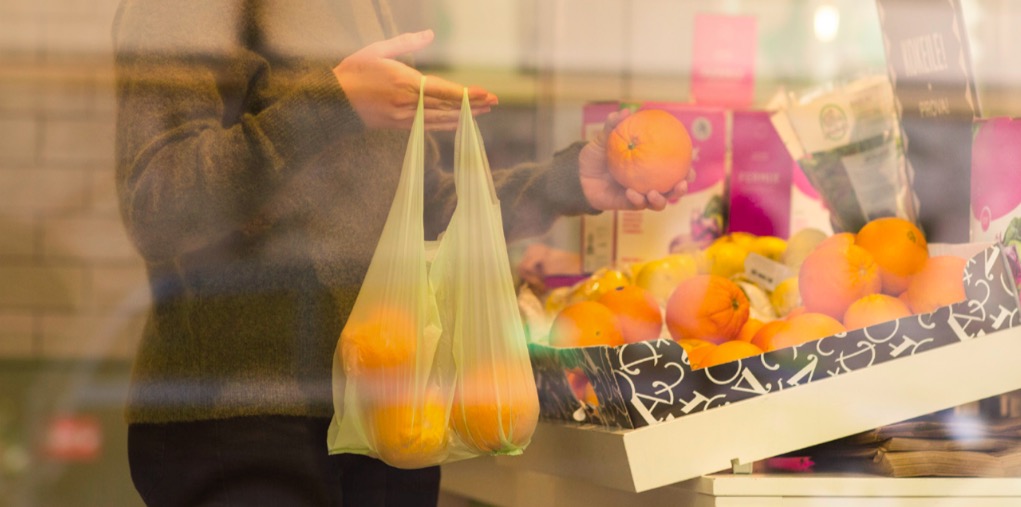Sustainability is no longer optional—it is now a key part of consumer decision-making. Businesses of all sizes are rethinking their packaging, and one of the simplest changes you can make is switching from plastic bags to compostable retail bags.
But what makes compostable bags better than plastic? And why should your business consider switching?
In this article, we’ll break down the benefits of compostable bags, how they compare to plastic and biodegradable alternatives, and how they can help improve your brand image and reduce your environmental impact.
What Are Compostable Retail Bags?
Compostable bags are made from renewable plant-based materials such as cornstarch, PLA (polylactic acid), or PBAT. These materials are designed to break down into water, carbon dioxide, and biomass in composting conditions, without leaving toxic residue behind.
They are different from biodegradable garbage bags, which may decompose eventually but could leave behind microplastics unless certified. Compostable bags are typically certified under international standards like:
- EN13432 (EU)
- ASTM D6400 (US)
- AS 4736 (Australia)
These certifications guarantee that the bag will break down in composting environments within a specific time frame and leave no harmful substances behind.

Why Choose Compostable Bags Over Plastic?
1. A Better Environmental Footprint
Plastic bags can take hundreds of years to break down. Even biodegradable waste bags can linger in landfills for years without proper decomposition. In contrast, compostable bags break down much faster—typically within 90 to 180 days in composting systems.
2. Made From Renewable Resources
Plastic is made from fossil fuels. Compostable packaging, on the other hand, is usually made from plants, making it a far more sustainable resource. This reduces the carbon footprint of your packaging and helps lower your overall environmental impact.
3. Safer Decomposition
Certified compostable bags break down cleanly into non-toxic elements. They do not leave harmful residues or microplastics in the environment, unlike traditional plastic and some uncertified biodegradable bags.
4. Supports Eco-Friendly Branding
Today’s consumers are highly conscious of the sustainability practices of the brands they support. By using eco-friendly packaging like compostable bags, you signal that your business cares about the planet, which builds trust and customer loyalty.
5. Compliance with Environmental Regulations
Many cities and countries are banning or heavily taxing single-use plastic bags. Making the switch to compostable retail bags or biodegradable garbage bags can help you stay compliant and avoid fines or restrictions.
Compostable vs Biodegradable: What’s the Difference?
While the two terms are often used interchangeably, they’re not the same.
- Compostable bags are designed to break down quickly in composting conditions and leave no harmful residue.
- Biodegradable bags will eventually decompose, but the timeline is uncertain, and they may leave microplastics behind.
When in doubt, always choose compostable products that carry a certification.
Practical Applications for Compostable Bags in Business

Compostable packaging isn’t just for groceries. Businesses in a variety of sectors are now using:
- Compostable food packaging bags for takeaway and delivery
- Biodegradable waste bags for collecting food scraps or recyclables
- Compostable retail bags for in-store or online shopping orders
Whether you run a clothing store, a coffee shop, a farmer’s market, or an e-commerce business, there is a compostable solution that fits your needs.
Are Compostable Bags Durable?
Yes. Today’s compostable bags are strong enough to handle daily commercial use. Whether you need small bags for product packaging or large biodegradable garbage bags for your store or café, they are built to hold weight and resist tearing during short-term use.
Just keep in mind that compostable bags should be stored in a cool, dry place to maintain their integrity. They generally have a shelf life of about 12 months.
Final Tips for Businesses Switching to Compostable Bags
If you’re thinking about offering compostable or biodegradable bags to your customers, here’s what to consider:
- Choose certified compostable products (e.g., BPI, EN13432)
- Match bag size to your use case (retail, food, waste)
- Make sure your packaging aligns with your sustainability messaging
- Work with suppliers who specialize in sustainable packaging for business

Where to Buy High-Quality Compostable Retail Bags?
At Hemcbags.com, we provide a complete range of certified compostable bags for retail, food service, and packaging purposes. Our products include:
- Compostable food packaging bags
- Biodegradable waste bags and garbage liners
- Custom-printed compostable retail bags
- Wholesale orders with global shipping
We help businesses around the world reduce plastic use while maintaining performance and branding.
Conclusion
Switching to compostable retail bags is more than just a packaging change—it’s a business decision that reflects your values and builds long-term customer trust. With growing global awareness of environmental issues and stricter regulations on plastics, now is the time to make the transition to sustainable packaging.
Explore eco-friendly bag options for your business today at Hemcbags.com.

